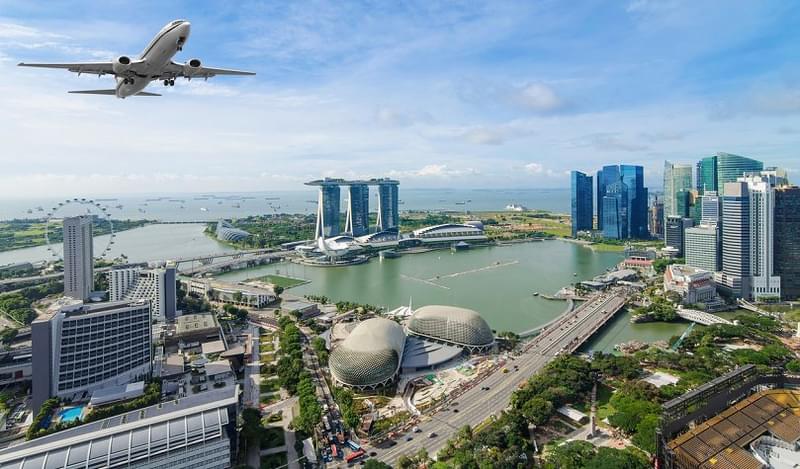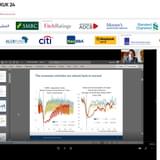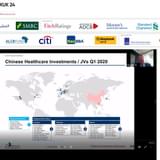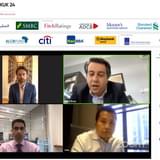Q. CDL became the first company in Singapore to issue a green bond. What were some of the main drivers behind the transaction? How did the green bond fit within the company’s broader funding strategy?
A. In April this year, CDL, through the wholly-owned subsidiary CDL Properties Ltd (CDLP), launched its inaugural green bond – a first by a Singapore-listed property developer. Green finance offers CDL an alternative financing stream. There is an increased interest in socially responsible investments and a growing demand for relevant products. CDL’s green bond links our sustainability initiatives with the capital markets and enables us to tap on investors who are supportive of the commitment that CDL has made over the past two decades towards sustainability best practices.
Our green bond issuance also complements the Singapore government’s target of “greening” at least 80% of the country’s building stock by 2030, which could potentially be the lynchpin of Singapore’s climate pledge to reduce its Greenhouse Gas (GHG) emissions. It is clear that for the next 13 years, real estate companies have a large role to play in mitigating climate change and contributing towards Singapore’s greening and GHG emissions reduction goals. We would certainly be keen to explore more green bond issuances in the future.”
Q. Can you give us a sense of the strategy taken on the S$100mn transaction? To what extent did the marketing strategy on this issuance differ from what you have encountered on roadshows for conventional issuances? What kinds of questions did you get from investors?
A. For more than two decades, sustainability has been integrated into CDL’s business and operations. Founded on our ethos of ‘Conserving as we Construct’ established in 1995, CDL has been committed to future-proofing our business through a three-pronged strategy as a developer, an asset owner and a corporate citizen. We develop green buildings, manage them in an energy- and resource-efficient way, and engage stakeholders on sustainable development. Our unique Environmental, Social and Governance (ESG) integration model has created tangible and long-lasting value for our brand, business operations, stakeholders, customers, investors and the community.
The investors of our green bond comprise mainly financial institutions and fund managers who have been familiar with CDL’s strong ESG performance and track record. The successful launch of our green bond reflects their confidence in and support of the commitment that CDL has made over the past two decades towards sustainability best practices and Republic Plaza’s green upgrading and retrofit initiatives.
Q. From planning to execution, what would you say was the biggest challenge involved with the green bond transaction?
A. As it was the first green bond by a Singapore company, extensive fact finding and learning of the process was needed. We met up with the relevant authorities and international consultants for advice and inputs. Meetings were also conducted with selected bankers, lawyers and consultants to draw up a broad framework and kick start the stringent requirements of data compilation, assessment, validation and documentation. Moreover, the issuance requires a second opinion provider, third party certifier and final certification, which entails extensive data compilation and verification. It helped that our green bond only involved one building, which made it possible to expedite the process and complete the entire assessment, auditing and certification work within three months.”
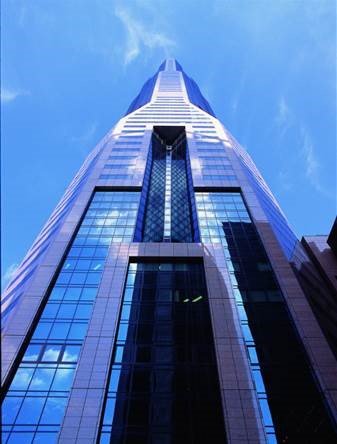 Q. Where will the proceeds from the green bond be deployed? How is the company managing reporting and auditing of the ESG impact of the instrument? Are the standards for measuring the ESG impact of an investment mature enough?
Q. Where will the proceeds from the green bond be deployed? How is the company managing reporting and auditing of the ESG impact of the instrument? Are the standards for measuring the ESG impact of an investment mature enough?
A. The two-year senior secured bond raised S$100 million at 1.98% fixed rate. Proceeds of CDL’s first green bond will be allocated to the repayment of a S$100 million loan extended by CDL to CDLP which owns Republic Plaza. Completed in 1996, Republic Plaza, one of Singapore’s tallest skyscrapers, is a premium Grade A office building at Raffles Place, in the heart of Singapore’s Central Business District. Since its completion, Republic Plaza has continuously been upgraded, including the major retrofitting of chiller plants and installation of energy efficient lightings with motion sensors, to improve the building’s energy efficiency. In 2012, Republic Plaza was awarded by Singapore’s Building and Construction Authority (BCA) with the highest Green Mark Platinum rating.
As a result of continuous efforts to enhance energy and water efficiency, Republic Plaza saves more than six million kilowatt-hours of energy annually, equivalent to the annual energy consumption of about 1,200 three-bedroom apartment units of around 100 square metres each. It also saves approximately 10,255 cubic metres of water, equivalent to approximately four Olympic-sized swimming pools. In total, this translates into more than S$1.2 million of savings from annual energy and water consumption.
CDL’s green bond is issued under the CDLP S$700 million secured Medium Term Note (MTN) Programme first established in 2001. DBS Bank Ltd. (DBS) is the sole bookrunner on this transaction. It was prepared in alignment with the Green Bond Principles, a set of voluntary guidelines encouraging transparency and disclosure of a bond’s use of proceeds; project evaluation and selection criteria; management of proceeds; and ongoing impact reporting commitments.
Sustainalytics, a leading global provider of ESG and corporate governance ratings and research, provided a second party opinion on the robustness of the green bond framework and its environmental credentials. The firm states in its assessment that CDL has a strong overall environmental commitment and is well positioned to issue green bonds. Given the alignment of the bond with the ICMA Green Bond Principles 2015, Sustainalytics considers the CDL green bond to be robust and credible. In addition, Sustainalytics has independently rated CDL as an industry leader in ESG performance.
Climate Bonds Certification of this green issuance was verified by KPMG using the Climate Bonds Standard developed by the Climate Bonds Initiative (CBI). CBI is the only organisation in the world working solely to mobilise the largest capital market – the US$100tn bond market - for climate change solutions.
Annually, CDL also has a robust tracking and reporting system in place for all our assets, including Republic Plaza. We report all sustainability performance data and trending in our annual integrated sustainability report. For our Integrated Sustainability Report 2017, CDL is the first private-sector developer in Singapore to adopt the latest 2016 Global Reporting Initiative (GRI) Standards for sustainability reporting. The enhanced standards promote a higher level of disclosure and greater accountability along CDL’s supply chain to address stakeholders’ concerns. To track the performance of Republic Plaza from the green building perspective, the BCA Green Mark certification provides stringent assessment that is aligned with global standards.
Q. Should there be a black-and-white approach to qualifying what is considered ‘green’ and what isn’t?
A. To market and grow relatively new investment instruments such as green bonds, formal validation and certification of sustainability data help to provide assurance and give investors greater confidence. They also enable issuers to closely monitor and keep track of performance to ensure that the instrument delivers on its promises. In turn, this will enhance the reputation of sustainable investment products on the whole and further spur their growth.
Q. The MAS took an interesting step with the recently announced green bond grant scheme, which helps subsidise the cost of second-party auditing. Are the measures enough to stimulate the market for sustainable finance in your view?
A. The demand for green bonds is fuelled by the Paris Climate Change Agreement, which took effect on 4 November 2016. Singapore has since ratified the Paris Agreement, and pledged to reduce its carbon emissions intensity by 36% from 2005 levels by 2030 as well as stabilise its emissions with the aim of peaking around 2030. More investors are also seeking to fund low-carbon and climate-resilient projects that are aligned with the goal of limiting global warming to below two degrees Celsius.
Increasingly, the Singapore government is taking steps to match the demand for sustainable investments and to nurture green finance. Green bonds are among a wider range of sustainability-oriented benchmarks, funds and products that the Monetary Authority of Singapore (MAS) is seeking to promote locally. Recognising that green bond issuers may have to bear additional costs as they engage external reviewers to ascertain their green bond status, MAS has announced a Green Bond Grant scheme to incentivise the issuance of green bonds. This is a very encouraging step forward and we hope that the success of CDL’s inaugural green bond issuance will also help to pave the way for other Singapore firms to tap into the fast-growing green bond market to finance green building projects and sustainability initiatives.
